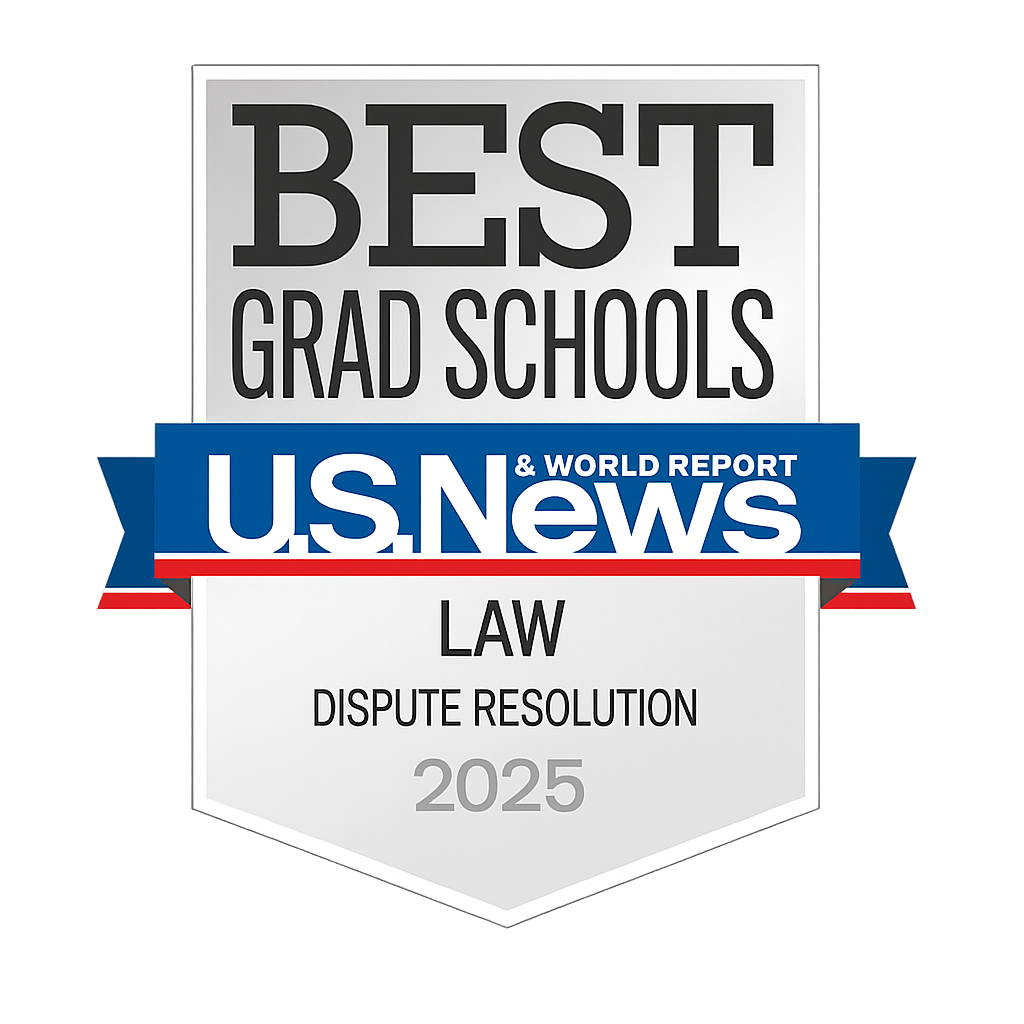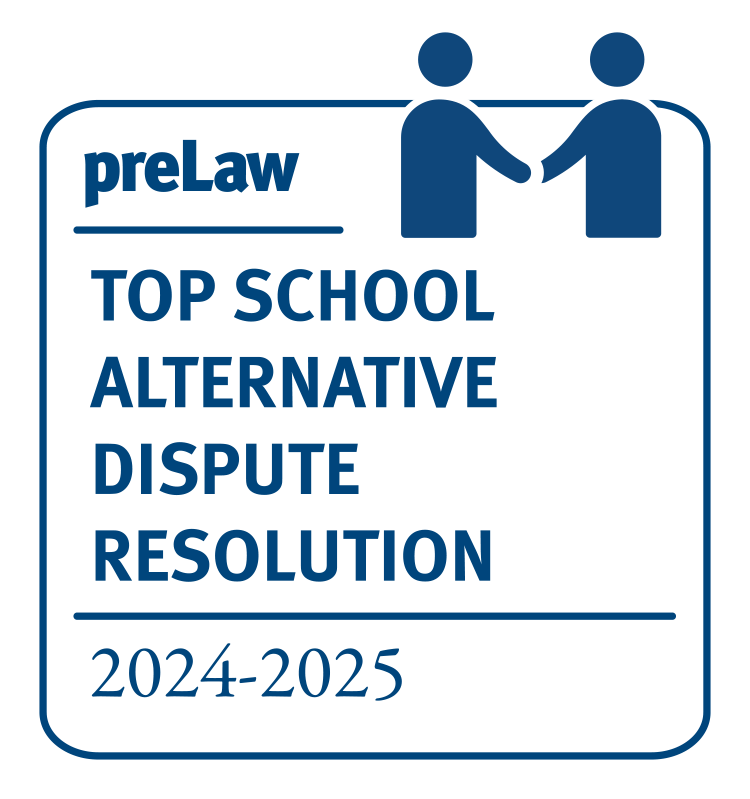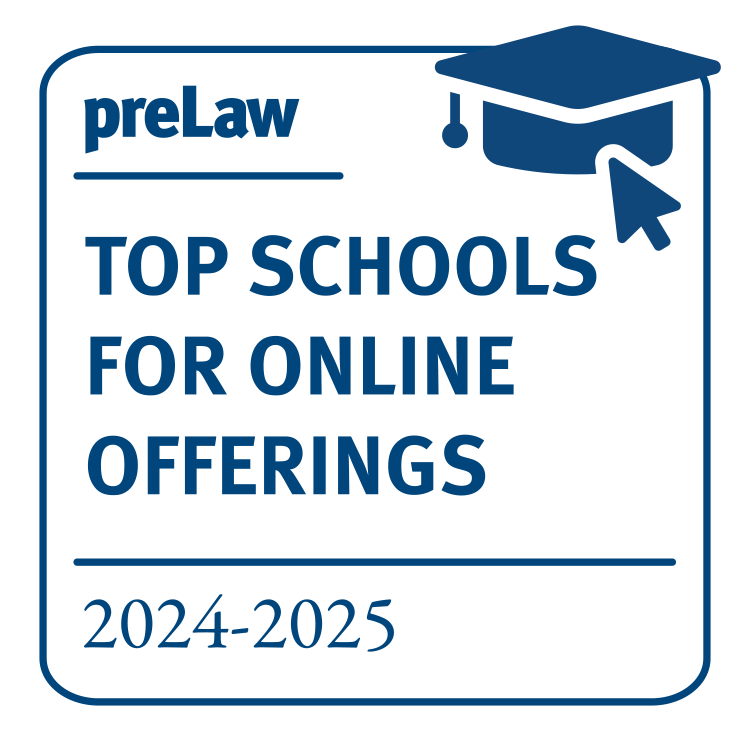Expand your credentials with Summer Institute courses
Summer is a great time to expand your skills and experience, and perhaps even add a certificate to your resume as you prepare yourself for professional advancement. DRI’s Summer Institute courses are available to degree and non-degree seeking students with their future in mind. In these courses, you are among a broad cross-section of law and graduate students, practicing lawyers, human resources and business personnel, and other professionals, which mirrors the contemporary, multidisciplinary workplace.
Summer Institute courses are taught by nationally and internationally recognized faculty actively involved in ADR practice, research, publication, and teaching.
2025 Summer Institute
Asynchronous Online Courses
-
Organizational Conflict Management | June 1-July 12, 2025
2 law school credits | 24 MN Rule 114 continuing education credit
Faculty:
Aimee Gourlay, Collaboration Services Manager, League of Minnesota Cities Insurance Trust.This course explores the nature and sources of systemic and organizational conflict and provides students with an opportunity to develop practical skills to prevent destructive conflict before it occurs and manage inevitable conflicts which arise in organizations. This course will utilize a range of modalities including case studies, discussions and research projects to illustrate key organizational conflict concepts. Students will learn how to analyze conflicts and help organizations create productive outcomes.
Synchronous Online Courses
-
-
-
-
Arbitration | June 2 – 7 | 2 law school credits
June 2, 3, 4, 5 (4:30 – 9:30 p.m.) & June 7 (9:00 a.m. – 5:00 p.m.)
24 CLE credits applied for; 24 MN Rule 114 continuing education credits
Faculty
David Larson, Professor of Law, Senior Fellow, Dispute Resolution Institute
This foundation course covers the salient points of U.S. arbitration law as it relates to domestic and international matters. The course curriculum begins with an introduction to the basic legal concepts that make up arbitration law and to the institutions that are central to arbitration practice. Consideration of the Federal Arbitration Act follows, along with a systematic treatment of the role of contract in arbitration and the function of subject matter inarbitrability. Problems relating to the enforcement of arbitral awards, the role of the arbitrator (focusing on the arbitrator’s functions, duties, and responsibilities), and other practice issues are examined. The basic facets of international commercial arbitration also are introduced. Through lectures, demonstrations, discussions, and simulations, this interactive curriculum is designed to foster effective use of contemporary arbitral processes.
-
-
-
-
-
-
Cross-Cultural Dispute Resolution | July 14-19, 2025 | 2-3 law school credits – 3-credit option is for those completing their long paper
July 14, 15, 16, 17 (4:30 – 9:30 p.m.) & July 19 (9:00 a.m. – 5:00 p.m.)
24 CLE credits applied for; 24 MN Rule 114 continuing education credits
Faculty:
Kaori Kenmotsu, Assistant Professor of Law, Mitchell Hamline School of LawThis course examines how obvious and not-so-obvious cultural difference impacts resolution of inter-personal and inter-state (international) disputes. Specifically, the course will bring an international perspective to understanding the impact of culture in the most commonly used international and domestic dispute resolution processes (negotiation, mediation and arbitration). It will follow a three-step approach to know and understand the influence of culture on decision-making, including: awareness and knowledge of one’s own culture; knowledge and understanding of another party’s culture; and knowledge and impact of either on the desired goal/outcome of the dispute. This course will help students be more culturally aware and better equipped for effective participation in dispute resolution processes that increasingly involve different languages, customs, values, nationalities, and states of origin.
-
-
On Campus Courses (Arranged in chronological order)
-
-
-
Decision Making in A Chaotic Reality & Challenging Conversations | June 7-14, 2025 | Variable 2-3 credits
2 – credit option: June 7, 8 (9:00 a.m. – 5:00 p.m.) & June 10, 11, 12 (4:30 – 9:30 p.m.)
3 – credit option: June 7, 8, 14 (9:00 a.m. – 5:00 p.m.) & June 10, 11, 12, 13 (4:30 – 9:30 p.m.)
24/36 CLE credits applied for; 24/36 MN Rule 114 continuing education credits
Faculty
Michael Tsur, Founder and Director, Shakla and Tariya, Israel; Senior Fellow, Dispute Resolution Institute, Mitchell Hamline School of Law; Member of the Israeli Defense Force Hostage Negotiation Unit
Professionals in today’s chaotic world must develop the skills necessary to handle those inevitable situations in which external events intrude upon, and interfere with, the professionals’ abilities to make clear and appropriate decisions. These situations of uncertainty can easily deteriorate into crises. If not handled correctly, they also can cause irreversible damage to relationships. In order to be effective in such situations, conflict professionals must possess the capacity to collect, assess and adapt new and changing information. They must also develop their creative capacities and vision to take into account and address the consequences for the future (“the day after”). In addition, professionals must be proficient in tackling challenging conversations. Using the most contemporary tools and methodologies for creative problem solving, students will develop the skills needed for making good decisions in a chaotic reality. Mastering these skills offers the possibility of negotiation success even when your negotiating partners do not share your aspiration to collaborate.
-
-
-
-
-
Theories of Conflict | June 13-18, 2025 | 2 law school credits
June 13, 16, 17, 18 (4:30 – 9:30 p.m.) & June 14 (9:00 a.m. – 5:00 p.m.)
24 CLE credits applied for; 24 MN Rule 114 continuing education credits
Faculty
Ken Fox, Professor, Hamline University School of Business; Senior Fellow, Dispute Resolution Institute, Mitchell Hamline School of LawThis interdisciplinary course introduces students to important theoretical perspectives on our understanding of conflict and conflict response. Specifically, students explore the biological/physiological, psychodynamic, social psychological, communication, and sociological/political perspectives on conflict by reading and discussing major theoretical works within each perspective. Emphasis is on comparing and distinguishing key dimensions of these theories, such as the nature and sources of conflict, conflict escalation, conflict response, and the nature of the third party role. Classes follow an interactive format. Using case studies, exercises, and group discussion to draw upon personal experiences, including those involving race and social identity, the course explores the usefulness of each perspective to understand the experience of conflict.
-
-
-
-
-
Mediation | June 21-28, 2025 | 3 law school credits
June 21, 22, 28 (9:00 a.m. – 5:00 p.m.) & June 24, 25, 26 (4:30 -9:30 p.m.)
36 CLE credits applied for; MN Rule 114 certification for civil facilitative/hybrid neutrals applied for
Faculty:
Joseph (Josh) Stulberg, Professor of Law Emeritus, The Ohio State University Moritz College of LawThrough discussion, simulations, and roleplay, this course focuses on the structure and goals of the mediation process and on the skills and techniques mediators use to aid parties in overcoming barriers to dispute resolution. The course also examines the underlying negotiation orientations and strategies that mediators may confront and employ; the roles of attorneys and clients; dealing with difficult people and power imbalances; cultural, race, and social identity considerations; and ethical issues for lawyers and mediators. In addition, special attention is devoted to the art of successful representation of clients in mediation.
-
-
-
-
-
Negotiation | July 7-14, 2025 | 3 law school credits
July 7, 8, 9, 10 & 14 (4:30 – 9:30 p.m.) & July 12-13 (9:00 a.m. – 5:00 p.m.)
36 CLE credits applied for; 36 MN Rule 114 continuing education credits
Faculty:
James Coben, Senior Fellow, Dispute Resolution Institute , Emeritus Professor of Law, Mitchell Hamline School of LawThis course examines the skills, constraints, and dynamics of the negotiation process. A theoretical framework for understanding negotiation practice in a variety of contexts will be developed through readings, highly interactive exercises, and role-plays. The course addresses fundamental skills such as systematic preparation management of the negotiation process, and identification of optimal agreements. Ethical constraints of negotiation also are considered. Course content is drawn from the fields of law, psychology, business, and communication.
-
-
-
-
-
Family Mediation | July 12-17, 2025 | 3 law school credits
July 12, 13, 14, 15, 16, 17, 2025 (9:00 a.m. – 5:00 p.m.)
36 CLE credits applied for; MN Rule 114 certification for family mediation facilitative neutrals applied for
Faculty:
Jana Deach, Family Law Attorney and Shareholder, Moss & BarnettThis is a challenging, high-energy course in basic divorce mediation skills and practice development. Along with the basic content areas of divorce settlement—property division, parenting, child and spousal support, divorce tax issues—the course also addresses the role of consultants and lawyers, conflict theory, psychological issues, power balancing, domestic abuse, drafting agreements, and mediation ethics. Although designed with the law student and family lawyer in mind, the course also is an ideal training and specialization opportunity for therapists and other social service professionals. This course emphasizes experiential learning with the opportunity for individual feedback from experienced coaches.
-
-
-
-
-
Restorative Justice | July 21-26, 2025 | 2 law school credits
July 21, 22, 23, 24 (4:30 – 9:30 p.m.) & July 26 (9:00 a.m. – 5:00 p.m.)
24 CLE credits applied for; 24 MN Rule 114 continuing education credits
Faculty:
Benjamin Wilson, Staff Attorney, The Ohio State University, Moritz College of Law, Divided Community ProjectRestorative Justice offers a refreshingly different framework for thinking about crime and other wrongdoing. Increasingly it is being called on as a practice to address non-criminal forms of conflict and harm that lead to deeply divided disputes in civil society. The heart of Restorative Justice is the practice of Restorative Justice Dialogue. This distinctive form of dialogue acknowledges the damaged relationships, as well as the injuries sustained by victims, that result from any wrongdoing and focuses on healing for all those involved. Rather than the adversarial approach commonly found in criminal and civil adjudicatory proceedings, the practice of Restorative Justice Dialogue involves engagement of those harmed, those causing harm and the community for the purpose of social healing in a way that can lead to recovery of our shared humanity in the midst of conflict, crime and harm. This course offers students an opportunity to study the four leading forms of Restorative Justice Dialogue practice: (1) Victim-Offender Dialogue (formerly called Victim-Offender Mediation); (2) Group Conferencing (sometimes called Family Group Conferencing); (3) Talking Circles (sometimes called Peacemaking Circles); and (4) Truth Commissions. The course will examine the principles underlying these forms of Restorative Justice Dialogue practice and explore the possibilities they offer to move beyond the limits of a retributive sense of justice toward embracing the importance of social healing in the community including the potential they have to encourage reform of judicial systems, to address disputes beyond the criminal justice system and to advance racial justice. The course will also explore the application of these processes in schools, workplaces, faith communities and families. Students will be invited to draw on their own experience of conflict as they explore the dynamics of different kinds of conflict. The class will be highly experiential in nature with the practice of the talking circle serving as a core modality for class discussion.
-
-
Course Requirements
Students must attend all class sessions and complete an advance reading assignment. Degree-seeking students must submit a written paper. Students may take one or more courses. Mitchell Hamline law students may take either the Mediation or Family Mediation course but may not take both for academic credit. Enrollment is limited to enhance the interactive nature of each course.
Course Materials
Syllabi for all courses will be made available at least 2 weeks prior to the first day of class.
Registration
Certificate Students: Complete the online application.
Law and Graduate Students: Degree-seeking law or graduate students currently enrolled in an accredited graduate program should complete the online application form. A letter from their school’s registrar reflecting the applicant’s status as a student in good standing with permission to take the Mitchell Hamline course(s) as a visiting student will need to be provided.
Attorneys: Attorneys may apply for summer courses by completing the online application form. Attorneys will be granted special student status.
Others: Other professionals may apply to take summer courses by completing the online application form. To be considered, applicants must furnish a transcript indicating completion of an undergraduate or graduate degree.
Tuition
Audit: $650/credit, except for the courses that qualify for MN Supreme Court Rule 114 Certification, which are offered at a flat rate as follows:
-
-
-
- Mediation and Family Mediation: $1,250
-
-
Certificate students: $930/credit
Full tuition is due 2 weeks prior to the start of the course. No refund will be made after this time for any reason, including cancellation or no show.
For further information on tuition costs, contact Kitty Atkins | 651.695.7677 | [email protected]
Questions
Contact Kitty Atkins | 651.695.7677 | [email protected]




